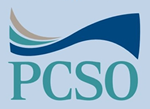Meet Guneet Kohli Kainth, born and raised in San Jose, Guneet is a first-generation Sikh American with a diverse family background. Her mother is from New Delhi, India, and her father is from Tehran, Iran. She has two sisters and is the first in her family to earn a professional degree. Guneet values diversity as an essential part of her identity, shaped by the unique perspectives and experiences that come from her multicultural upbringing. As she prepares to establish her practice, she remains grounded in her Indian heritage and lives just a stone’s throw away from her mother’s home, reinforcing the importance of family and community bonds.
Guneet began her career at UCLA for her undergraduate studies and then onto pursue her dreams at University of Michigan for dental school and finally completing her residency at Roseman University of Health Sciences. Guneet’s passion for her profession have only grown stronger as she has moved from student to orthodontist. Not only is she an orthodontist, but she is married to her partner who is a Pediatric Anesthesiologist. Guneet’s journey has seen its fair share of challenges, including navigating a long-distance marriage for five years, and even giving birth during the challenging times of the COVID-19 pandemic. Now, as part of the Engagement, Diversity, & Inclusion committee, Guneet continues to be a driving force in creating a more inclusive and equitable orthodontic community. Her incredible story and unwavering dedication make her a true inspiration, and we are delighted to feature her as our first “We Are PCSO” campaign participant.
Guneet’s involvement in Engagement, Diversity, & Inclusion (EDI) initiatives stems from her passion for supporting and empowering others. Having always been actively engaged in organized dentistry, community service, and multicultural affairs, she recognizes the significance of having a support system while applying knowledge. She has held various leadership roles, such as being part of the advisory committee for the dean of the dental school and winning the prestigious Ida Gray award during dental school, demonstrating her commitment to inclusivity and diversity.
In the context of orthodontics and the PCSO, Guneet defines inclusion as a critical component for creating a welcoming and respectful environment. By promoting values of respect and inclusion, we can make everyone in the community a little bit more aware of their words and actions and foster an atmosphere where everyone feels heard and valued. As the workforce evolves post-COVID, the importance of inclusion becomes even more apparent, given the diverse backgrounds of both patients, teams and orthodontic professionals.
To promote a more inclusive environment within PCSO, the Engagement, Diversity, & Inclusion committee is actively working towards developing training programs and resources. Their aim is to engage and educate members on the significance of equity and cultural sensitivity in orthodontic care. By fostering awareness and providing tools, they hope to establish a more welcoming atmosphere for patients from diverse backgrounds. Challenges remain on the path to achieving greater inclusion and equity within the orthodontic profession. Addressing these challenges requires the collective effort of the community, with open discussions and a series of talking points to ensure relevant and constructive dialogue and this is something that Guneet and the committee are working on.
To ensure equitable and culturally sensitive orthodontic care, Guneet advocates for the development of a toolkit for every practice, providing DEI training to all practitioners and team members. This approach will help create a more receptive environment for all patients and strengthen the bonds of trust between patients and practices.
For orthodontists and professionals aspiring to create a more inclusive and equitable practice, Guneet’s advice is to embrace openness and treat everyone with respect and understanding. By adopting a diverse mindset, practitioners will not only provide better care but also attract a more extensive and diverse patient base, enriching the profession as a whole.

